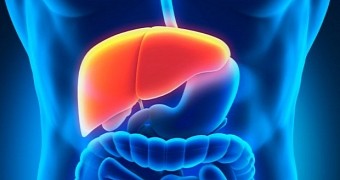In a study recently published in the Journal of Hepatology, a team of scientists at Mayo Clinic, a medical research group based in Minnesota, US, describe an artificial liver that they developed as an alternative to transplantation.
The laboratory-made organ, dubbed the Spheroid Reservoir Bioartificial Liver, is essentially a device that uses pig cells to clear a patient's blood of waste and toxins, meaning that it does what the liver is supposed to do in the human body.
By allowing the real organ a break from its daily routine, the Spheroid Reservoir Bioartificial Liver gives it a chance to heal and regenerate, the Mayo Clinic researchers explain.
“The device uses healthy hepatocytes, or liver cells, from pigs to do the job of a normal, healthy liver,” the scientists write in a report detailing their work developing this artificial liver.
“The Spheroid Reservoir Bioartificial Liver that can support healing and regeneration of the injured liver, and improve outcomes and reduce mortality rates for patients with acute liver failure,” they add.
The artificial liver developed by this team of medical experts has so far only been tested on pigs, Science Daily informs. Still, the outcome of these experiments was encouraging enough to warrant a clinical trial involving human patients.
A preferable alternative to transplantation
Figures released by the American Liver Foundation show that, each year, liver disease kills around 30,000 to 40,000 people in the US. Many of these people die while waiting for a donor organ to replace their faulty, damaged one.
The Mayo Clinic argue that, seeing how it works by promoting healing and regeneration of a patient's injured liver, their Spheroid Reservoir Bioartificial Liver might help bring down the mortality rates documented in the case of people diagnosed with acute liver failure.
Basically, patients would no longer have to sit around hoping for a transplant surgery. Instead, the artificial liver developed by the Mayo Clinic team would make it possible for their real organ to recover, thus eliminating the need to have it replaced.
In fact, the scientists argue that their device might actually prove the better treatment option, seeing how transplant surgeries are tricky interventions and come with a risk of rejection.
“A bioartificial liver device could allow physicians to treat and extend the lives of more patients, safely and cost-effectively, with fewer risks,” said specialist Scott Nyberg.

 14 DAY TRIAL //
14 DAY TRIAL //